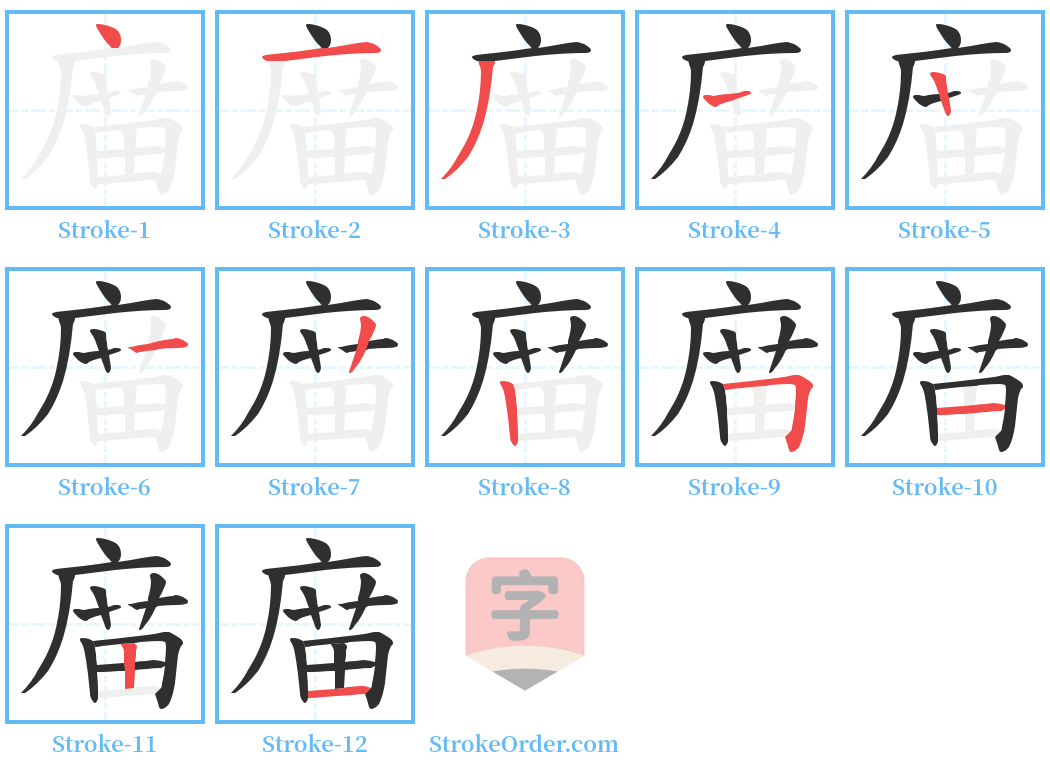庿 Stroke Order
Animated Stroke Order of 庿

Stroke Order Diagrams for 庿

Information of 庿
Pinyin
miào
Radical
广
Strokes
11 strokes
Usage
★★
Definition
庿:
1. Ancient form of “庙” (temple).
Meaning:
- (Noun) Phonetic compound. From “广” (yǎn, indicating a sound associated with a temple). "广" relates to buildings. Primary meaning: ancestral temple, a place for offering sacrifices to ancestors.
- Same primary meaning as “廟”, which denotes reverence for ancestors. — From "说文". It indicates the ancestral temple honoring the appearance of ancestors. Ancestral shrines are for ghost offerings to ancestors. — From "广雅·释天". A room with east and west wings is called a temple, while the absence of wings is called a bedroom. — From "尔雅·释宫". Temple and bedroom are both essential. — From "礼记·月令". Note: "The front is called a temple, the back is called a bedroom."